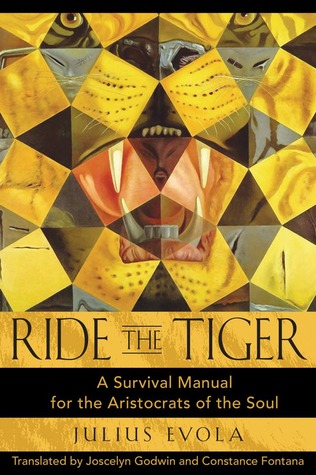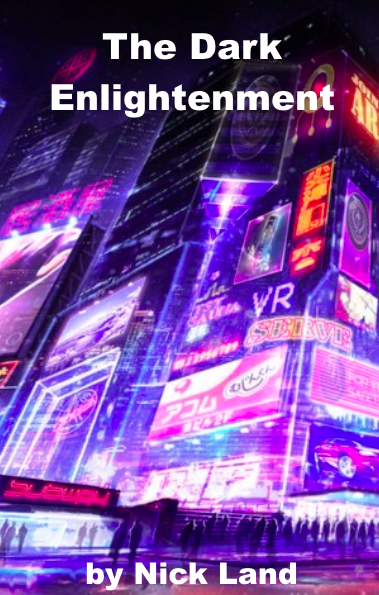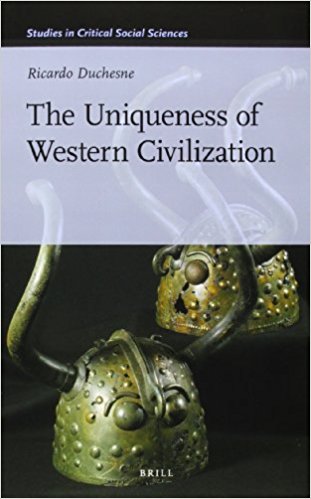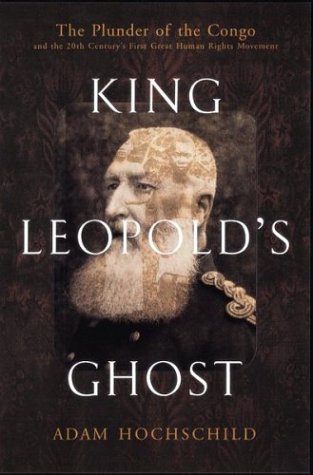|
Ride the Tiger
by Julius Evola Published in 1961 256 Pages Thibault’s Score: 2/5 Julius Evola is an insane Italian author from the 1940s and one of the ideological architects of the modern reactionary intellectual movements. After reading Nick Land’s Dark Enlightenment, and being thrilled and fascinated by what I read, I decided to turn to Evola. Evil’s style of writing is incomprehensible. The book reads like the rant of a crazed - perhaps intoxicated nut job. Evola does have very neat ways of wording his sentences and explaining his ideas, but his arguments are lost in the mess. While Evola does have some insights as to why reactionaries and traditionalists are always swept away by the liberals, I had to put the book down and stop reading it because I didn’t like the writing.
0 Comments
The Dark Enlightenment
by Nick Land Published in 2008 250 Pages Thibault’s Score: 4/5 Nick Land makes the case for right wing exitism - that conservatives and reactionaries should seek to exit the current political systems rather than futilely fight for a voice. “The state isn’t going anywhere, because, to those who run it, its worth far too much.” Land cites everyone from Richard Dawkins to Ludwig von Mises. Land has, for a long time, captured my imagination. Land criticizes traditional enlightenment values. He argues that Christian and post-Christian universal egalitarianism is the worst amongst these values. Land also criticizes the virtue of tolerance as hypocritical as tolerance requires the intolerance of tolerance. Because of universalism and tolerance’s impossibility, these virtues in fact serve as social policing functions, with the state fundamentally determining wrong from right. Land is very critical of the various factions of the right: the libertarians, the religious right, the neonazis, the ethane nationalists, the paleo conservatives, and the mainstream republicans. No ideological subgroup is sparred from the chopping block. Nick Land also has a unique insight on race relations. He suggests that the reason why whites are becoming more staunchly republican is because as dominant groups become minorities, tribalism and in-group preference increases. He also argues that tribalism is exemplified by stereotypes about racial differences in behavior. His history of the word “cracker” is particularly interesting. I recommend the Dark Enlightenment to anyone who is knowledgable enough to know who Nick Land is before picking up this review - otherwise I would instead suggest something else. The Uniqueness of Western Civilization
by Ricardo Duchesne Published in August 2012 527 Pages Thibault’s Score: 3/5 The central thrust of the book is that only Western Civilization industrialized, because only the West had the unique characteristics required to adopt free markets. He extensively criticizes cultural relativists who argue that all cultures are equal, arguing that non-material measurements of human progress are irrational. A starving, diseased, and violently oppressed population, Duchesne argues, can never be free or prosperous. He also criticizes Sinocentrism, a theory that argues that for most of human history China was the world’s primary center of commerce. Duchesne argues that the classical Western world’s richest areas were more prosperous than China’s, although China was more advanced on a whole. Fundamentally, the West’s aristocratic moral character is the main reason why the West is superior. He argues that this is compounded by various biological, environmental, and cultural factors. I found Duchesne’s arguments to be compelling, but the writing style to be boring and repetitive. Overall this book is worth reading if you are into advanced libertarian thought, but has little interest for the general public. King Leopold’s Ghost: A Story of Greed, Terror, and Heroism in Colonia Africa
by Adam Hochschild Published in 1998 306 Pages Thibault’s Score: 4/5 This book certainly changed by perspective of the history of the Democratic Republic of Congo, a country which has fascinated me for several months. The book opens with the history of the heroic explorers who braved numerous dangers such as hostile natives, disease, starvation, rugged environments, and “worms that burrow in the feet.” Hochschild covers their victories, their personal tragedies, as well as their heinous crimes. Hochschild also devotes much ink to the life of King Leopold, and explores the character of Europe’s most murderous monarch. He talks about his life history, and paints Leopold as not just a murderer, a complex 3-dimensional human being with rational motives. Finally, he also devotes many pages to the dissidents and activists who went to the Congo and condemned the exploitation of the natives. He also reflects on the current situation in the Democratic Republic of Congo. I found the writing style to be very clear and pleasant to read. The book is well-paced but still remains very information-dense. By the end of this book, I truly understood the title. The ghost of King Leopold still haunts the Democratic Republic of Congo. |
Thibault SerletMost of my articles are book reviews, but I also write about many other topics. Archives
December 2023
Categories |




 RSS Feed
RSS Feed